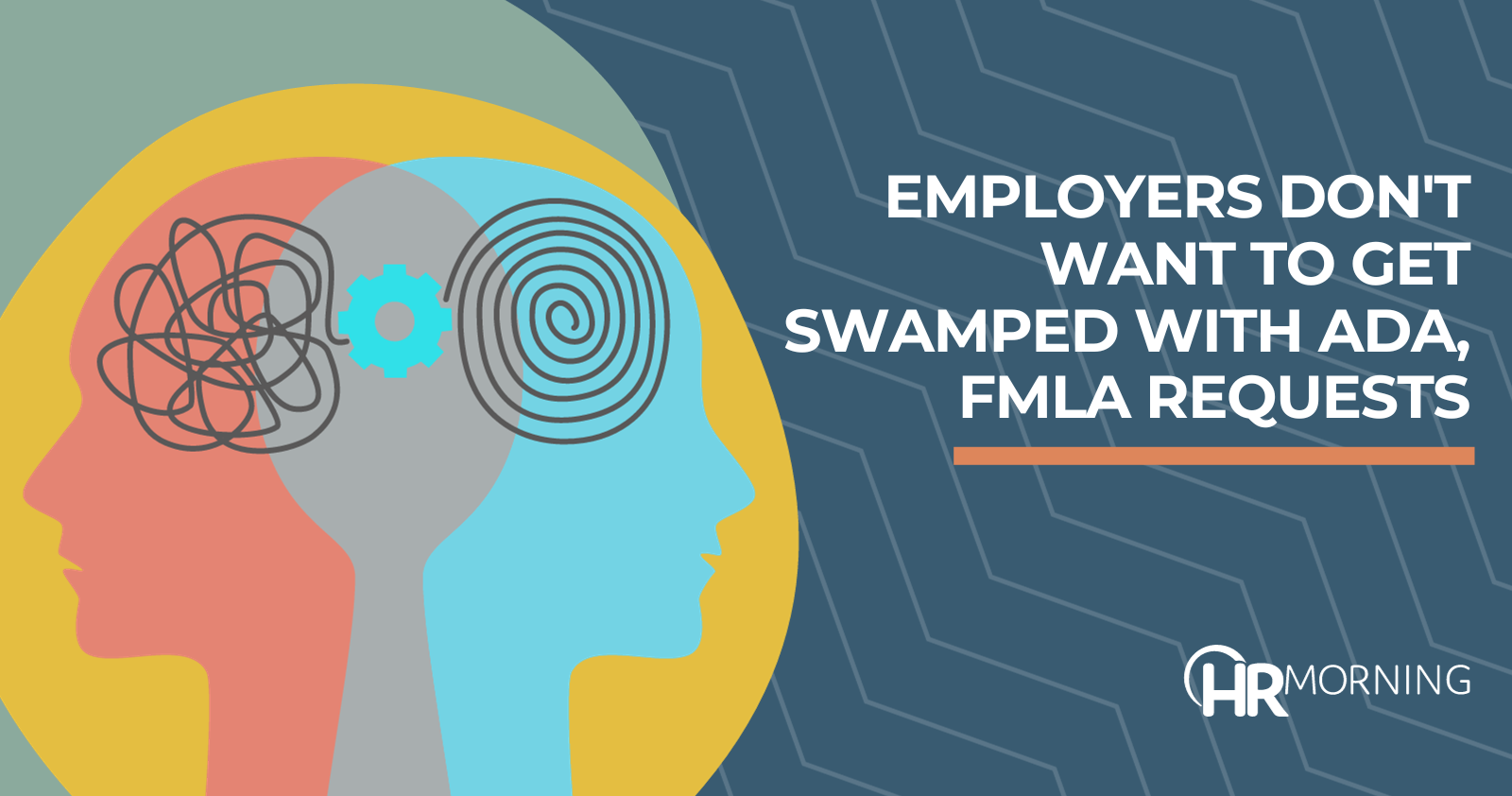More than half of employers (55%) are having some kind of conversation about workplace mental health, according to a survey of workers and employee benefits leaders by Lyra. However, that also means 45% of employers are not openly talking about it.
There’s a big reason: fear of a surge of employee requests for Americans with Disabilities Act (ADA) accommodations or Family and Medical Leave Act (FMLA) protected time off.
A survey from law firm Fisher Phillips found 54% of employers that openly discuss mental health have seen an increase in accommodation requests related to mental health. However, providing reasonable accommodations related to workplace mental health doesn’t necessarily mean a risk of undue hardship. Almost half (48%) of the respondents reported that telework, hybrid and flexible work schedules help to address workers’ mental health issues.
It’s also important to note that for a mental health issue to qualify as an FMLA serious medical condition, the Department of Labor specifically says the employee must either be receiving:
- inpatient care (an overnight stay in a hospital or other medical care facility), or
- continuing treatment by a healthcare provider, generally meaning a condition that requires at least twice-a-year treatment.
An employer is allowed to require a note from a healthcare provider supporting the employee’s need for FMLA leave, but cannot mandate evidence of an official diagnosis.
Cultural shift on workplace mental health
If discussions about workplace mental health aren’t a part of your culture, be forewarned that Gen Z may flip the script on that. Eighty-seven percent of Gen Z young adults feel comfortable talking about mental health and 63% feel comfortable opening up about their own mental health struggles, according to HarmonyHit.com.
In addition, the American Psychological Association’s 2022 Work and Well-Being Survey found 81% of workers reported that they’re looking for employers that support their workplace mental health.
What HR pros can do
While you can’t solve everyone’s mental health issues – nor should you be trying to – HR’s in a position to help.
It starts with being empathetic. If you hear someone’s performance is really slipping, or you see someone exhibiting signs of anxiety, for example, let that person know that you understand that they’re struggling and want to help, even if you don’t know exactly what they’re going through.
If they just need someone to listen, that’s great. But if you get the sense that they need solutions for their problems, pointing out resources can make a difference.
An employee assistance program (EAP) can not only start employees on a healing journey. An EAP can offer valuable training to managers on the best approaches when they see someone on their team struggling with workplace mental health.
There’s also helpful guidance in the HRMorning on-demand webinar “Supporting Employee Mental Health: Building Resilience and Enhancing Well-Being.”


